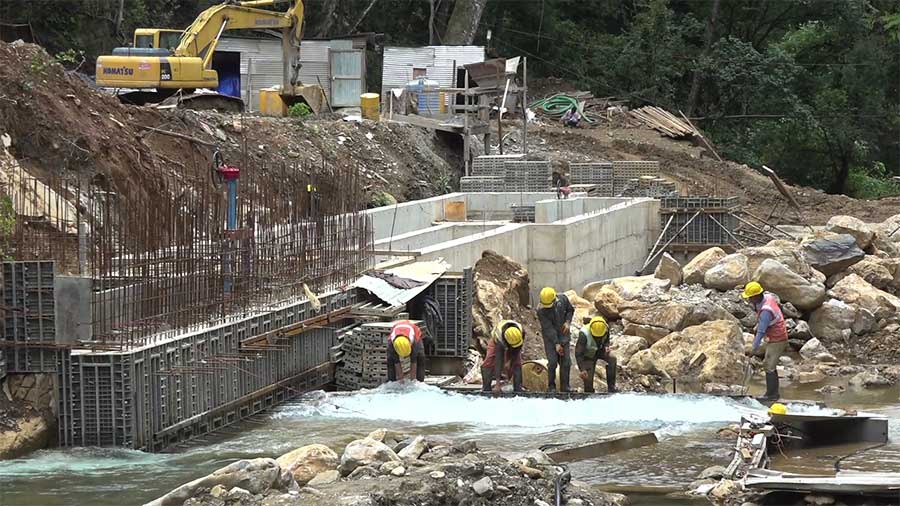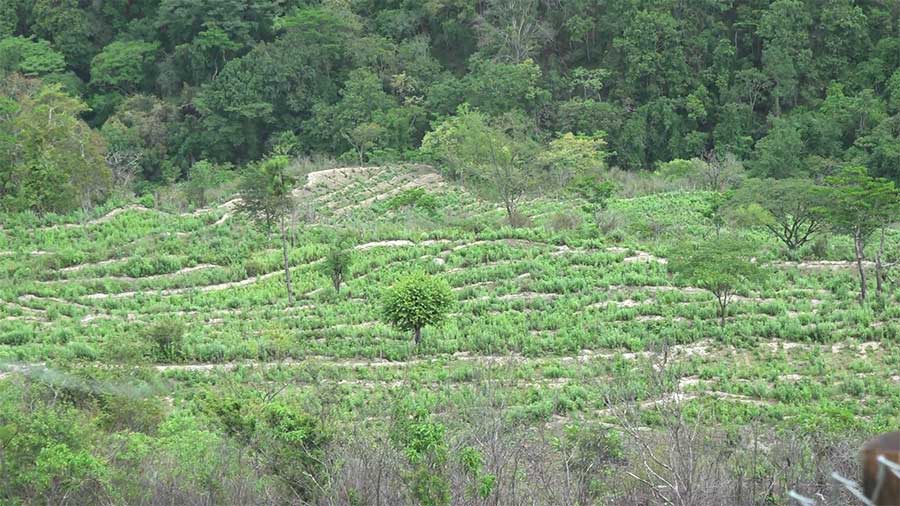
In Wangdue Phodrang, farmers in Kumchhi-Phangyuel Chiwog in Phangyuel Gewog have left their fields fallow for decades. Despite willingness to do paddy cultivation works, without a reliable irrigation water supply, the farmers were forced to rely on ration from the markets for sustenance. But now, things are about to change for the good. A 38-kilometre climate resilient irrigation scheme is expected to complete early next year, ahead of its September deadline. The project, which is expected to irrigate over 1300 acres of agricultural land is one of the largest irrigation water projects in the country.
 In the past, farmers in Phangyuel tried their hands at paddy cultivation from spring water during monsoons. Slowly, spring water sources dried up, and so did the paddy fields.
In the past, farmers in Phangyuel tried their hands at paddy cultivation from spring water during monsoons. Slowly, spring water sources dried up, and so did the paddy fields.
However, all hope is not lost. The irrigation scheme is 80 per cent complete and the villagers in the chiwog are delighted at the prospects.
“We have been suffering so far without irrigation water and water to drink. We are thankful to the government, beyond sky and earth, for giving us irrigation water. I have been praying that I will be able to live off paddy cultivation,” said Gyem, a resident.
“My daughter and son-in-law are struggling, working to feed us. They have children and have to take care of us. I will work hard when the water arrives. I am wishing the water comes sooner,” said Mani, another resident.
The Phangyuel irrigation water will be supplied from the Baychhu stream at Damchhuthang in Kazhi Gewog.
Construction work of intake infrastructure at the source is nearing completion.
The project will also benefit villages in Kazhi Gewog. High-Density Polyethylene pipes are being used for the scheme.
According to the United Nations Development Programme, the pipes are retrofitted with new and climate-resilient technology – also known as climate-proofing.
The irrigation system is designed to better withstand extreme weather conditions, as opposed to the conventional open-irrigation system.
While the project will benefit most of Phangyuel Gewog, residents of Chhungen Chiwog are worried they may not reap benefits from the scheme.
“When the surveyors were here, we came to know that the Baychhu scheme will not be able to cover our village. It is fine if it is for a year or two. But this may go on for generations. Our children might ask us how we did not get the water supply when others in Phangyuel Gewog did,” said Sangay Pem, a resident.
The Gewog Administration says due to the steep gradient, 30 acres of land in Chhungen will not have access to the water supply.
Consultation meetings are being held with villagers to find a way forward.
“We are exploring ways to substitute their land that falls above the Baychhu water pipeline with state land below it. We have enough state land. If that is done, then the villagers of Chhungen will benefit equally from the project,” said Kinley Dendup, Mangmi of Phangyuel Gewog.
The irrigation scheme worth over Nu 550 M is funded by the Green Climate Fund and implemented by the government in partnership with the UNDP Bhutan.
The project is expected to benefit 285 households in Phangyuel and Kazhi Gewogs.
Changa Dorji, Wangdue Phodrang
Edited by Sherub Dorji







